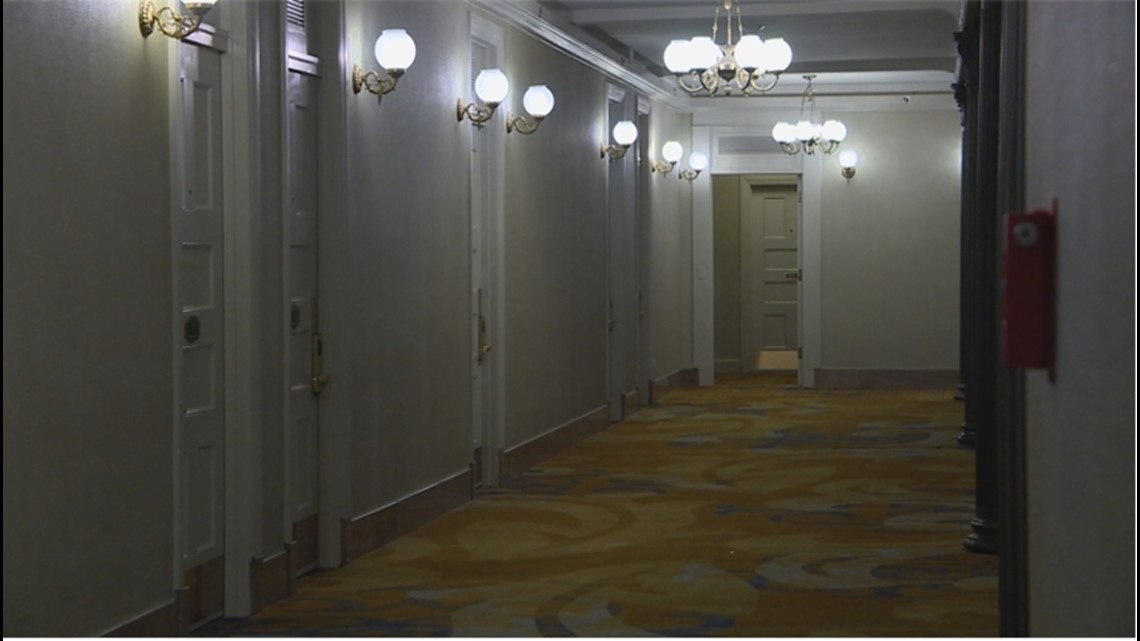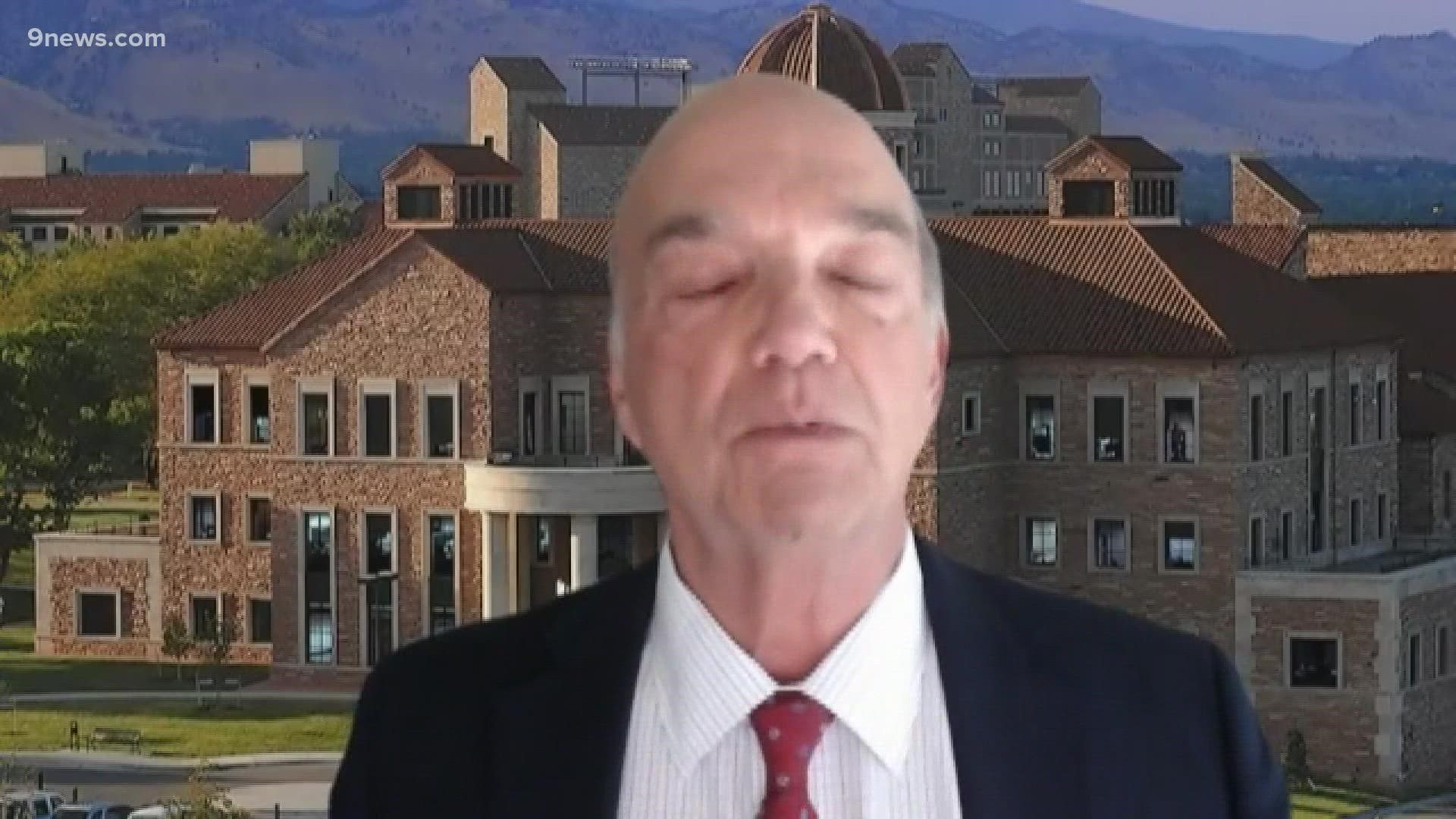COLORADO, USA — Holiday cheer is filling the lobby of the Brown Palace Hotel and Spa in downtown Denver, and so are guests.
"This is our busiest time at the Brown Palace," General Manager Nick Moschetti said. "I mean, we've got holiday tea, which thousands of guests enjoy every year, and we're in full swing of that. It's also the time of year where we have holiday parties, company parties. There's still weddings happening. So yes, this is a very busy time for the hotel."
The number of people checking back into hotels is a sign of the industry's comeback, but the employment levels have continued to lack for many.
"We're probably just over the two-third mark, so we're probably down about a third of our pre-pandemic associate level," Moschetti said.
The Colorado Business Economic Outlook for 2022, which is compiled by CU Boulder's Leeds Business Research Division, shows promise for the amount of jobs hospitality and leisure will add next year.
However, experts acknowledge it may not reach pre-pandemic levels until at least 2023.


Projections show some promise
The number of people checking into hotels is catching up to pre-pandemic levels.
According to STR (CoStar Group), a firm that tracks data in the hospitality industry, 53% of hotel rooms were occupied in Denver's Central Business District for the week ending Nov. 27 this year. That's compared to 68% for the week ending Nov. 30 in 2019.
In Denver as a whole, for the same weeks, occupancy was at 64.2% in 2019, and up to 55% in 2021.
Statewide, that gap tightens. Occupancy was 55% for the same week in 2019, and 52.8% in 2021.
The rise in demand for hotel rooms has brought back the demand for jobs in hotels and lodging.
According to Colorado Business Economic Outlook for 2022, the leisure and hospitality industry is projected to grow the most out of the industries examined. It's projected to grow 10.4%, adding 31,700 jobs.
While it's a step in the right direction, Richard Wobbekind, a Senior Economist with CU Boulder, said they don't anticipate the industry to return to pre-pandemic levels until 2023 or 2024.
"Well, it was the industry, of course, impacted the most significantly by the downturn," he said. "Conversely, the recovery is--it's a slower road even with such a huge number. It's a very big sector in Colorado, and we have a significant tourism sector. We’re a tourism state to some extent. When you look at that, even with these big job numbers, we're still not back to the same place."
Speaking generally of the state's overall economy and effort to add jobs, Wobbekind said the single biggest issue facing employers and those looking for a job is a "talent mismatch."
"The most recent data that’s produced by the federal government in a report called JOLTS – the Job Openings and Labor Turnover Survey – there’s roughly one job open in Colorado for every unemployed person," he said. “So you say ‘oh, that means every unemployed person could have a job,’ but you know, that job might need welding skills or that job might be in nursing and you don’t have nursing certification, or it might be in software. So there are a certain number of jobs that are certainly in the mismatch category, and that’s part of the constraint that’s out there.”
A larger piece, he said, is slowed population growth.
"Some of that due to the fact we have much lower in-migration from other parts of the world. Some of that was policy, but a lot of it had to do with COVID, quite honestly," he said.
Overall, he said it's also hard on employers because of uncertainty.


Becoming a viable industry, once again
Moschetti with the Brown Palace Hotel said the good news is he feels they're going into 2022 with momentum.
"Not only this hotel, but our industry. And we're just hopeful that continues to surge," he said.
But for now, he said, the shortage of workers makes it hard on staff.
"I mean, everyone's got to do a little more to cover the gaps of work for those open positions, so it puts a little more strain on everyone," he said.
"Although we try to minimize the impact to the guest, the reality is there's not as many associates that are serving our guests," he said. "So there's going to be a result of that. But we can't use that as an excuse. We know we've got to figure out ways to get the job done and provide a high-level service to our guests. But I think the biggest impact is that it makes everyone's job a little harder."
He said on several occasions, they've implemented hiring and retention bonuses, but overall have continued to raise wages.
"It's a balancing act between being attractive to new associates coming into the hotel and also being an attractive choice for our associates to want to stay here. So we've really tried to explore all those different avenues," he said.
Cooks, room attendants and housekeepers are positions they're struggling most to find as of now.
Overall, he said, as an industry it's more of a matter of marketing and presenting the job in a new way to a younger demographic.
"We have to be viable again, and we have to be an industry that people want to come to again, and young people want to come to to build careers on. And I think we've learned a lot about how to be competitive and how to be an industry that people want to grow, a career in which we can," he said. "The folks that we do have working here have an incredible dedication to this hotel and to our guests. And it's an environment that unless you're in it, you don't really know how fulfilling it can be."
SUGGESTED VIDEOS: Latest from 9NEWS

